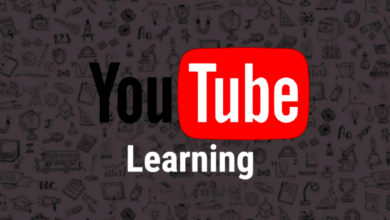The Ultimate Guide to Career Advice & Counseling Courses Online
Discover top online career counseling courses, certification programs, and training opportunities. Compare costs, requirements, and career outcomes in 2025.

The demand for qualified career counselors has never been higher. With rapid technological changes, economic uncertainties, and evolving workplace dynamics, millions of people need professional guidance to navigate their career paths successfully. Online career counseling courses offer an accessible and flexible way to enter this rewarding profession or enhance your existing skills in human resources, education, or coaching.
Whether you’re looking to become a Certified Career Counselor (CCC), transition into career services, or add counseling skills to your current role, online programs provide comprehensive training without the constraints of traditional classroom schedules. These courses cover essential topics including career development theory, assessment techniques, counseling methods, and ethical practices that prepare you to help clients at every stage of their professional journey.
This ultimate guide examines the best online career advice and counseling courses available in 2025, helping you understand certification requirements, compare program costs, and choose the right path for your professional goals.
Understanding Career Counseling: What You Need to Know
What is Career Counseling?
Career counseling is a specialized field that combines psychological principles with practical job search strategies to help individuals make informed career decisions. Career counselors work with clients to identify their strengths, interests, and values while providing guidance on education, job search techniques, and career transitions.
The field encompasses several key areas:
- Vocational assessment and testing
- Career development theory application
- Resume writing and interview coaching
- Job market analysis and trends
- Work-life balance counseling
- Career transition support
The Growing Need for Career Professionals
According to the Bureau of Labor Statistics, employment for counselors is projected to grow 13% from 2020 to 2030, much faster than the average for all occupations. This growth is driven by increased awareness of mental health issues, career uncertainties, and the need for professional guidance in an evolving job market.
Types of Online Career Counseling Courses Available
Certificate Programs
Career counseling certificate programs are designed for professionals who want to add counseling skills to their existing qualifications. These programs typically require 100-200 hours of coursework and can be completed in 6-12 months.
Popular certificate options include:
- Career Advising Certificates from UC San Diego Extended Studies
- Workforce Development Professional Certificates
- Career Coaching Certifications from various providers
- Industry-specific career counseling certificates
Master’s Degree Programs
For those seeking comprehensive training, CACREP-accredited master’s programs provide the most thorough education in career counseling. These programs typically require 60 credit hours and include supervised clinical experience.
Leading online master’s programs include:
- North Carolina Central University (only CACREP online career program)
- University of Phoenix Career and Vocational Counseling
- Penn State Master of Education in Career Counseling
- Walden University Career Counseling courses
Professional Development Courses
Short-term professional development courses are perfect for current counselors, HR professionals, or educators looking to enhance their career counseling skills. These courses focus on specific techniques or populations.
Continuing Education Programs
Licensed counselors can maintain their credentials through continuing education courses that focus on current trends, new assessment tools, and specialized populations in career counseling.
Certification Requirements and Pathways
Certified Career Counselor (CCC) Credential
The National Career Development Association (NCDA) offers the premier certification in career counseling. To obtain the CCC credential, candidates must meet these requirements:
Education Requirements:
- Master’s degree or higher in counselor education, counseling psychology, or closely related field
- CACREP, CORE, or APA accredited program preferred
Experience Requirements (choose one):
- 600 hours of clinical career counseling experience under supervision
- 60 hours of approved continuing education in career development
- Successful completion of NCDA Facilitating Career Development course
Assessment Requirements:
- Online competency assessment
- Professional references
- Demonstration of core counseling and career specialization competencies
State Licensing Considerations
While career counseling certification is nationally recognized, some states require additional licensing for counselors who provide mental health services. Research your state’s requirements before enrolling in a program.
Top Online Career Counseling Course Providers
University-Based Programs
1. North Carolina Central University
- Only CACREP-accredited online career counseling master’s program
- 60 credit hours
- Comprehensive clinical training
- Strong job placement rates
2. University of Phoenix
- Flexible 6-week courses
- Career and Vocational Counseling specialization
- Transfer credit acceptance
- Working professional focus
3. Penn State World Campus
- CACREP-accredited Master of Education
- Career counseling emphasis
- Research-based curriculum
- Strong alumni network
Professional Training Organizations
1. UC San Diego Extended Studies
- Career Advising Specialized Certificate
- 100 hours of instruction over 3 quarters
- CWDP certification eligibility
- Canvas-based online learning
2. American Career and Training School
- Self-paced online programs
- Affordable tuition options
- Digital badges and certificates
- Comprehensive curriculum coverage
Key Course Components and Curriculum
Core Subject Areas
Effective online career counseling courses cover these essential topics:
Career Development Theory
- Holland’s theory of career choice
- Super’s developmental theory
- Social cognitive career theory
- Constructivist approaches
Assessment and Testing
- Career interest inventories
- Skills assessments
- Personality testing
- Values clarification exercises
Counseling Techniques
- Individual counseling skills
- Group counseling methods
- Motivational interviewing
- Solution-focused approaches
Special Populations
- Career counseling for students
- Adult career transitions
- Military veterans
- Individuals with disabilities
- LGBTQ+ career concerns
Technology and Resources
- Online career assessment tools
- Job search databases
- Career information systems
- Social media for job searching
Practical Training Components
Quality programs include hands-on experience through:
- Practicum experiences with real clients
- Case study analysis and discussion
- Role-playing exercises for skill development
- Internship opportunities in career services settings
Benefits of Online Career Counseling Education
Flexibility and Accessibility
Online career counseling courses offer several advantages over traditional classroom programs:
- Study from anywhere with internet access
- Balance coursework with work and family commitments
- Access to recorded lectures for review
- Reduced travel and accommodation costs
Technology Integration
Online programs often provide better integration of career counseling technology, including:
- Virtual career assessment platforms
- Online counseling simulation software
- Digital portfolio development tools
- Remote counseling techniques
Diverse Learning Opportunities
Online programs frequently offer:
- Guest lectures from industry experts
- Virtual networking opportunities
- Access to national career development resources
- Participation in online professional communities
Career Prospects and Salary Expectations
Employment Opportunities
Graduates of career counseling programs can pursue various roles:
Educational Settings:
- College career services counselor ($45,000-$65,000)
- High school guidance counselor ($40,000-$60,000)
- Community college advisor ($35,000-$55,000)
Private Practice:
- Independent career coach ($50-$200 per hour)
- Corporate career consultant ($60,000-$90,000)
- Executive career coach ($75,000-$150,000+)
Non-Profit and Government:
- Workforce development specialist ($40,000-$60,000)
- Veterans services counselor ($45,000-$70,000)
- Community career center director ($50,000-$80,000)
Industry Growth Projections
The career counseling field shows strong growth potential due to:
- Increased awareness of career development importance
- Growing need for career transition support
- Expansion of online counseling services
- Rising demand in educational institutions
How to Choose the Right Online Program
Accreditation Considerations
When selecting online career counseling courses, prioritize programs with proper accreditation:
- CACREP accreditation for comprehensive counseling programs
- Regional accreditation for the institution
- NCDA endorsement for certificate programs
- State approval if licensing is required
Program Format Options
Consider these delivery methods:
Synchronous Learning:
- Live online classes at scheduled times
- Real-time interaction with instructors and peers
- Immediate feedback and discussion
Asynchronous Learning:
- Self-paced course completion
- Flexible scheduling around work commitments
- Recorded lectures and materials
Hybrid Programs:
- Combination of online and in-person components
- Campus visits for intensive workshops
- Local clinical placement opportunities
Cost and Financial Considerations
Online career counseling course costs vary significantly:
Certificate Programs: $1,000-$5,000 Master’s Degree Programs: $20,000-$50,000 Individual Courses: $300-$1,500 per course Continuing Education: $50-$500 per course
Financial aid options include:
- Federal student aid for degree programs
- Employer tuition reimbursement
- Professional development funds
- Payment plan options
Success Strategies for Online Learning
Time Management Tips
Successful completion of online career counseling training requires:
- Create a dedicated study schedule
- Set weekly learning goals
- Use time-blocking for coursework
- Minimize distractions during study time
Building Professional Networks
Online students should actively:
- Participate in discussion forums
- Join professional associations like NCDA
- Attend virtual conferences and workshops
- Connect with classmates on LinkedIn
Practical Application
Apply your learning through:
- Volunteer career counseling opportunities
- Informational interviews with professionals
- Practice sessions with friends and family
- Professional development workshops
Getting Started: Next Steps
Research and Compare Programs
Before enrolling in career counseling courses online, take these steps:
- Identify your career goals and desired credentials
- Research state licensing requirements in your area
- Compare program curricula and accreditation status
- Calculate total costs, including books and fees
- Contact admissions representatives for detailed information
Prepare for Application
Most programs require:
- Completed application form
- Official transcripts from previous education
- Professional references
- Personal statement or essay
- Resume or CV
Consider Your Learning Style
Evaluate whether online learning suits your preferences:
- Do you learn well independently?
- Are you comfortable with technology?
- Can you maintain motivation without in-person interaction?
- Do you have reliable internet access?
External Resources for Career Counseling Professionals
For additional information about career counseling education and professional development, consider exploring these authoritative resources:
- The National Career Development Association (NCDA) provides comprehensive information about certification requirements, professional standards, and career counseling resources.
- The Council for Accreditation of Counseling and Related Educational Programs (CACREP) maintains standards for counseling programs and provides a directory of accredited institutions.
Conclusion
Online career advice and counseling courses offer an excellent pathway into this growing and rewarding profession. Whether you choose a comprehensive master’s degree program, a focused certificate course, or continuing education opportunities, online learning provides the flexibility and accessibility needed to advance your career while maintaining your current responsibilities. Success in this field requires a combination of theoretical knowledge, practical skills, and genuine passion for helping others achieve their professional goals. By carefully selecting an accredited program that aligns with your career objectives and learning style, you can build the expertise needed to make a meaningful impact in people’s lives while establishing a fulfilling career in career counseling. The investment in career counseling education not only opens doors to diverse employment opportunities but also positions you to contribute to a field that’s essential for navigating today’s complex career landscape.











